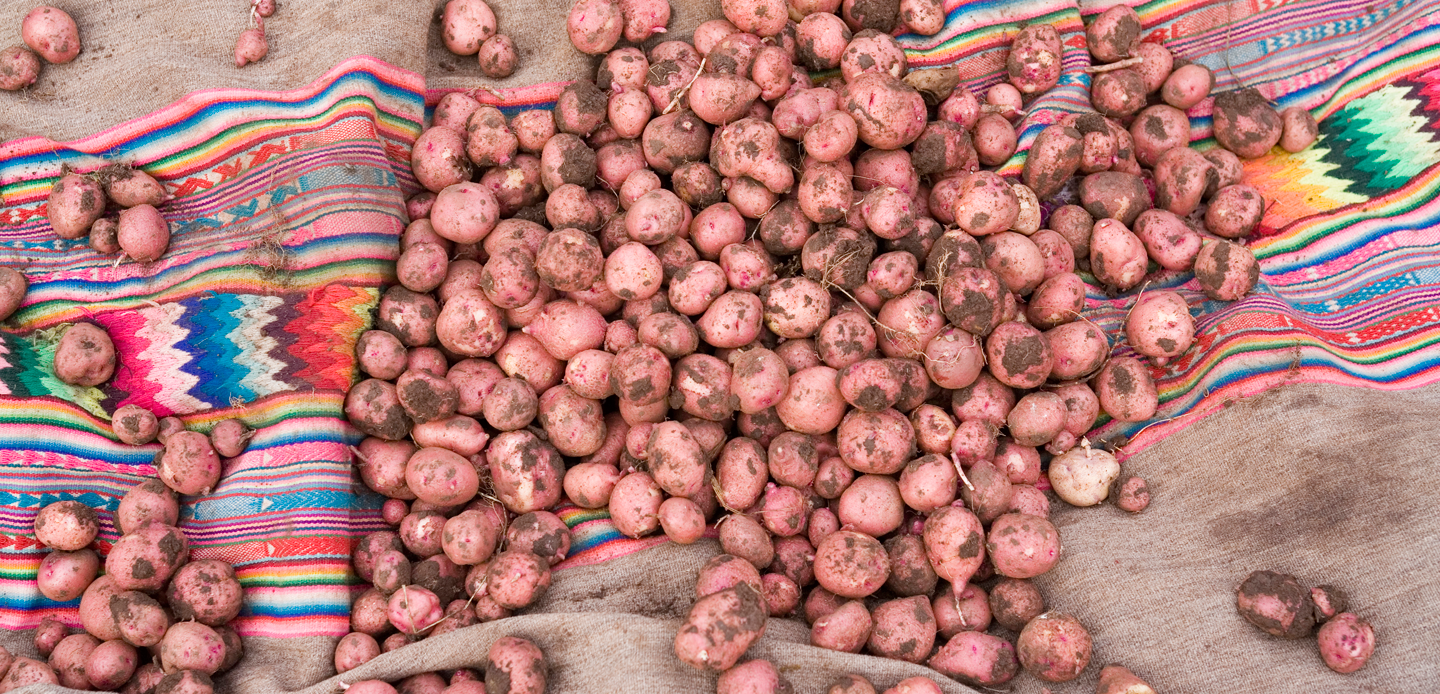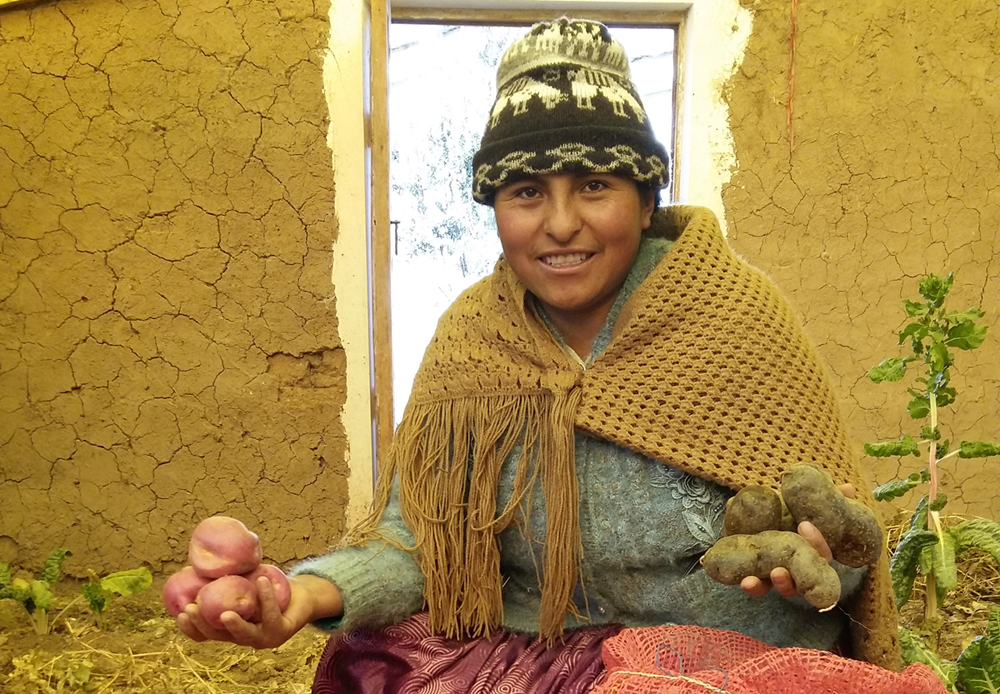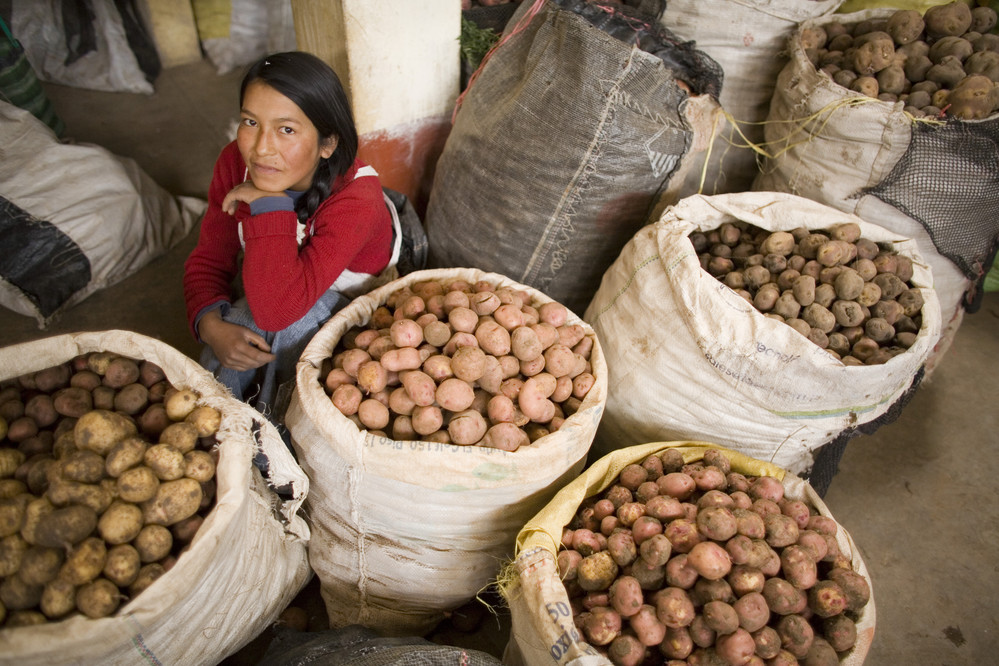I’m a potato grower! Strengthening innovation to empower potato growers in the Andes
IFAD Asset Request Portlet
Asset Publisher
I’m a potato grower! Strengthening innovation to empower potato growers in the Andes
Estimated reading time: 3 minutes
©IFAD/Pablo Corral Vega
The world is faced with a rising demand for food due to population growth, changes in dietary habits and the availability of agricultural resources. As a result farmers need to be more efficient and productive. To accomplish this, two underlying problems in the agriculture sector must be addressed: lack of water and the effects of climate change.
The situation is even worse when farmers lack the support they need to tackle these problems. Many of them have limited access to appropriate technologies and markets. This is precisely the case of potato farmers in Bolivia, Ecuador and Peru, who rely on this tuber as their main source of food and income.
In this context, in December 2015, IFAD and the International Potato Centre (CIP) signed an agreement to carry out the IFAD-CIP Programme for Strengthening Innovation to Improve Income, Food Security and Resilience of Potato Producers. The objective was to increase the income, food security and climate resilience of poor farm families with cultivation systems based on the production of potatoes (native and improved varieties).
The story of Gaby Quispe of Patacamaya, Bolivia, is typical and gives a simple illustration of how to achieve gender equity and the empowerment of rural women through the use of climate-smart technologies in potato production.
Gaby Quispe, a story of change
Gaby Quispe is from the Yanahauira community in Chiarumani, Patacamaya, located in Bolivia’s Aroma Province. Gaby is a young woman who works in the fields as a potato farmer because her husband, who is from another community, has to find work elsewhere.

Gaby is a member of a farmers’ organization in Chiarumani which encouraged her to participate in the training activities provided by the IFAD-CIP Andes project. She found internships and became responsible for transferring the knowledge she gained to other growers in her community, especially other women.
The project created opportunities for women who, like Gaby, had never participated in agricultural training activities. Since the start of the project in 2016, Gaby has come a long way and is now able to express her thoughts and demonstrate her skills. Her contribution to the project boosted her confidence and made her dream of improving production to make a living from it come true.
When she was younger, her parents taught her how to plant and select potatoes, a custom handed down from parents to children. So for Gaby taking part in the project and learning about the crop and good practices was particularly important.
“Before, I had never considered how the way I selected seeds was negatively affecting my yields, so learning to how to select them properly to improve seed quality was very important for me,” she said, filled with emotion.
Nor did she imagine that the pheromones of female moths can help trap male moths and keep them from ravaging her stored potatoes. She now has plans to improve her storage facilities and use the new techniques more effectively.
The young grower also admitted that she had not believed that potatoes could be grown from sprouts and, even though Patacamaya is at an altitude where this technique is often unsuccessful, she has managed to produce some small potatoes. Since it had been important for her to learn how to do this, she never missed the sessions at the Farmer Field Schools, where she learned how to manage the crop throughout its growth cycle.

Gaby described her story with the unique name “Soy papa, no papa”, a title that reflects the importance of potatoes in her life and that of her community. They depend on the cultivation of potatoes, achieving good productivity at a lower cost with lower health risks and obtaining better prices in the market. She appreciated the opportunity to share experiences with other growers, which enabled her to learn about potato farming and marketing innovations and how to convey what she learned to her neighbours.
“I learned how to select seeds. Before, we would select them haphazardly. Now, we are better at seed selection. Before, one sack of seed yielded 15 sacks of potatoes; now, it yields 25. I spend less on seed.”
Thanks to the IFAD-CIP Andes project, some 12,000 families living in poverty have benefitted directly and some 3,000 families indirectly.
For more information, read the full report: Soy papa, no papá: Historias de cambios destacables del proyecto “Fortalecimiento de la innovación para mejorar los ingresos, la seguridad alimentaria y la resiliencia de productores de papa en Bolivia, Ecuador y Perú”
Publication date: 31 July 2019